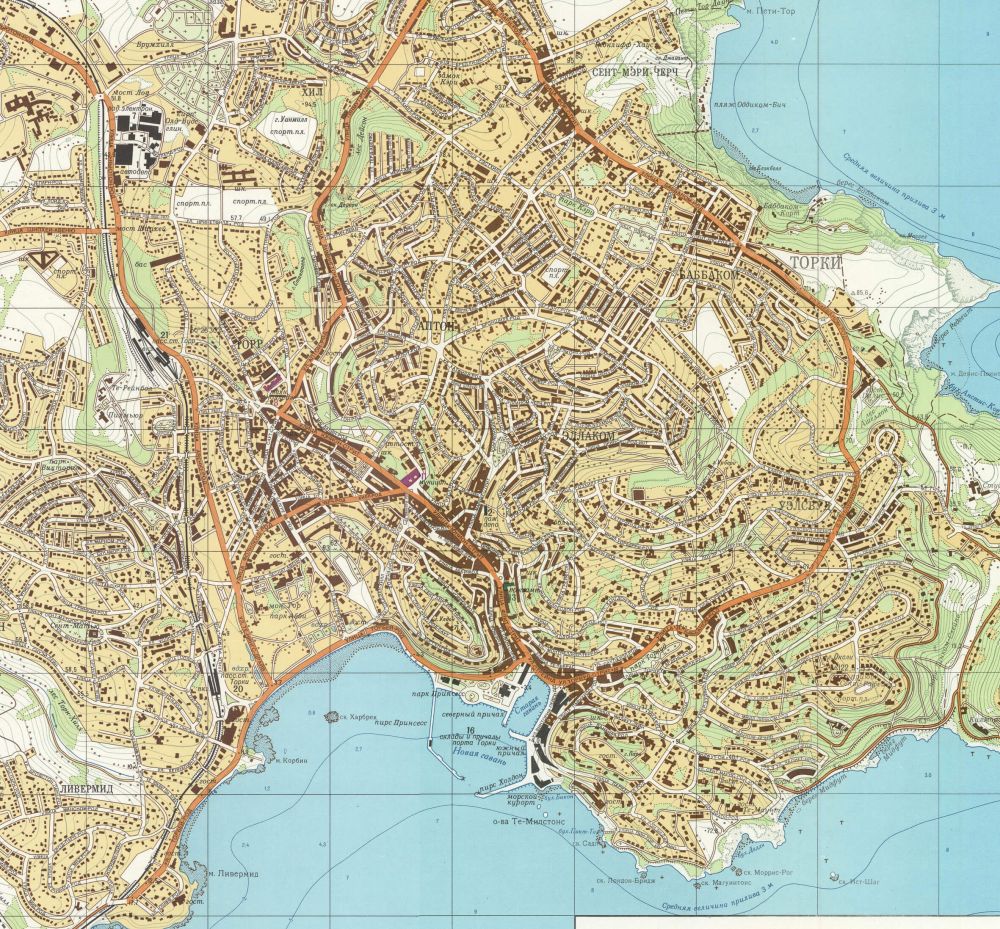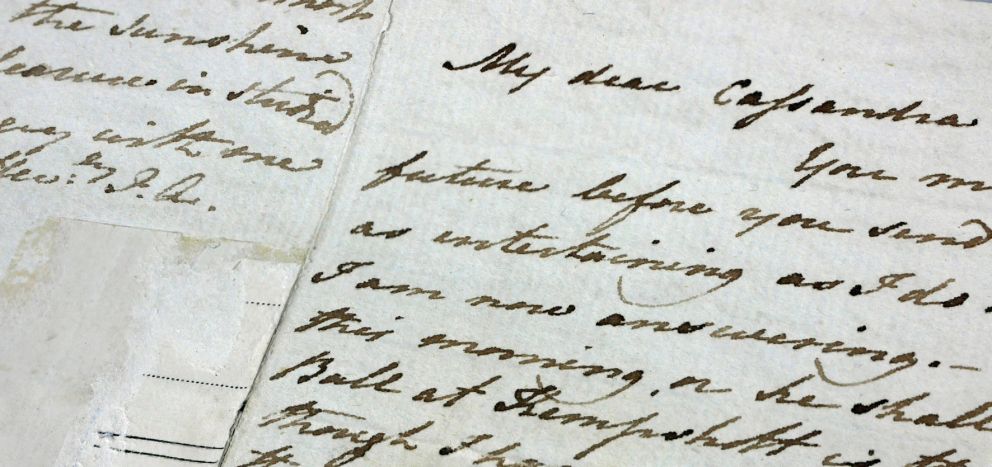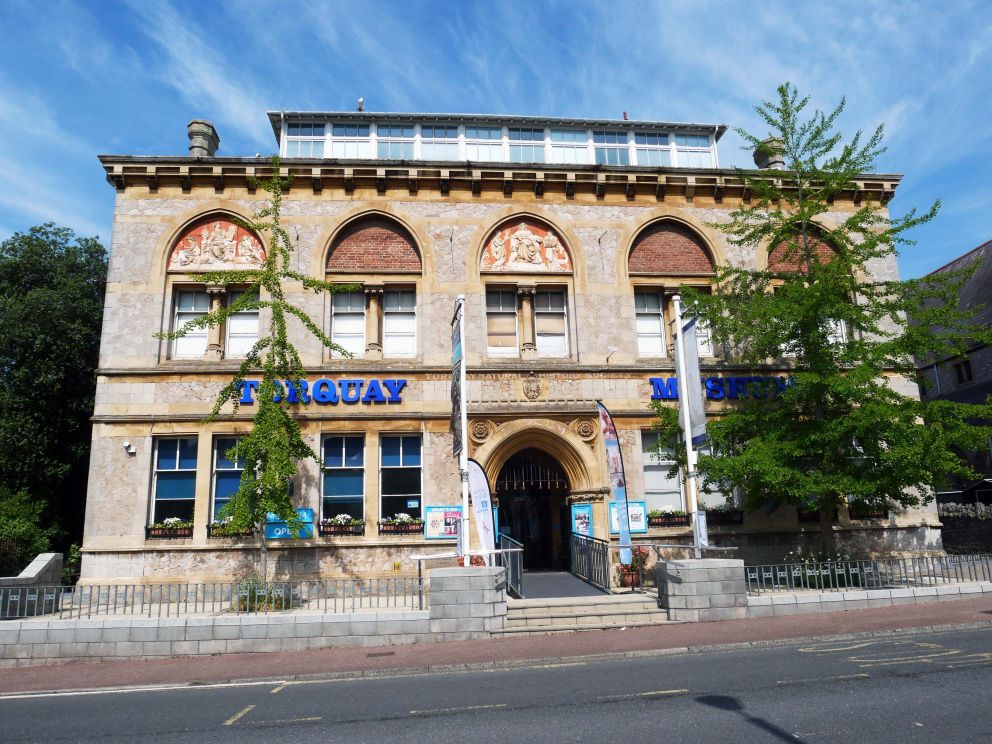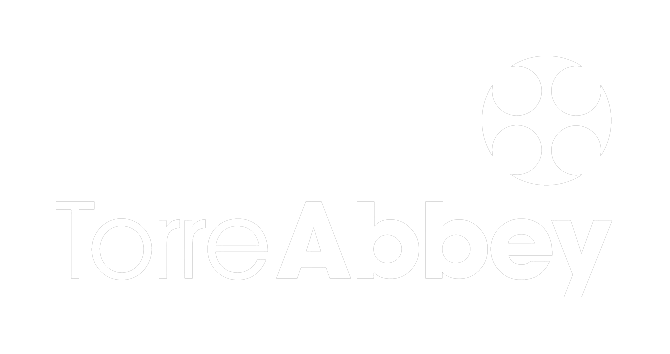Our archives
Going back a few decades, there were no recognised archive collections at the Museum. Most of the Museum's collections were undocumented by modern standards and the archives were not viewed as a collection in their own right. We could not search them and their significance was unknown. It is fair to say that the archives were a well-kept secret for most of the 20th century. This started to change with the discovery of the Hester Forbes-Julian Collection.
Read More 

Hester Forbes-Julian Letter Collection
The Hester Forbes-Julian collection of letters and autographs, now one of the Museum’s most valued possessions, remained hidden until 1987, when it was rediscovered during storage improvements. Hester was William Pengelly's daughter and the wife of the well-known metallurgist Henry Forbes-Julian who was lost on the Titanic. The collection comprises 16 albums of autographs, letters, engravings and cuttings relating to some 1500 individuals, many of them major figures of the Victorian and Edwardian eras. The fields of literature, politics, science and music are all represented: John Keats, Jane Austen, the Brontë’s, Charles Darwin, Abraham Lincoln, Guiseppe Verdi, Dr. Livingstone, the Duke of Wellington to name but a few.
Alongside these autographs appears an original copy of the 1606 Privy Council warrant for the death of the Gunpowder Plotters, and the initial written authorisation to establish the Secret Service, just two of the many political documents that secure the historical importance of Hester’s collection.
The collection of over 4,000 items is held in storage, and is documented on a computer database. It is possible to view it by request.
John Keats' Love Letter below
Read More 

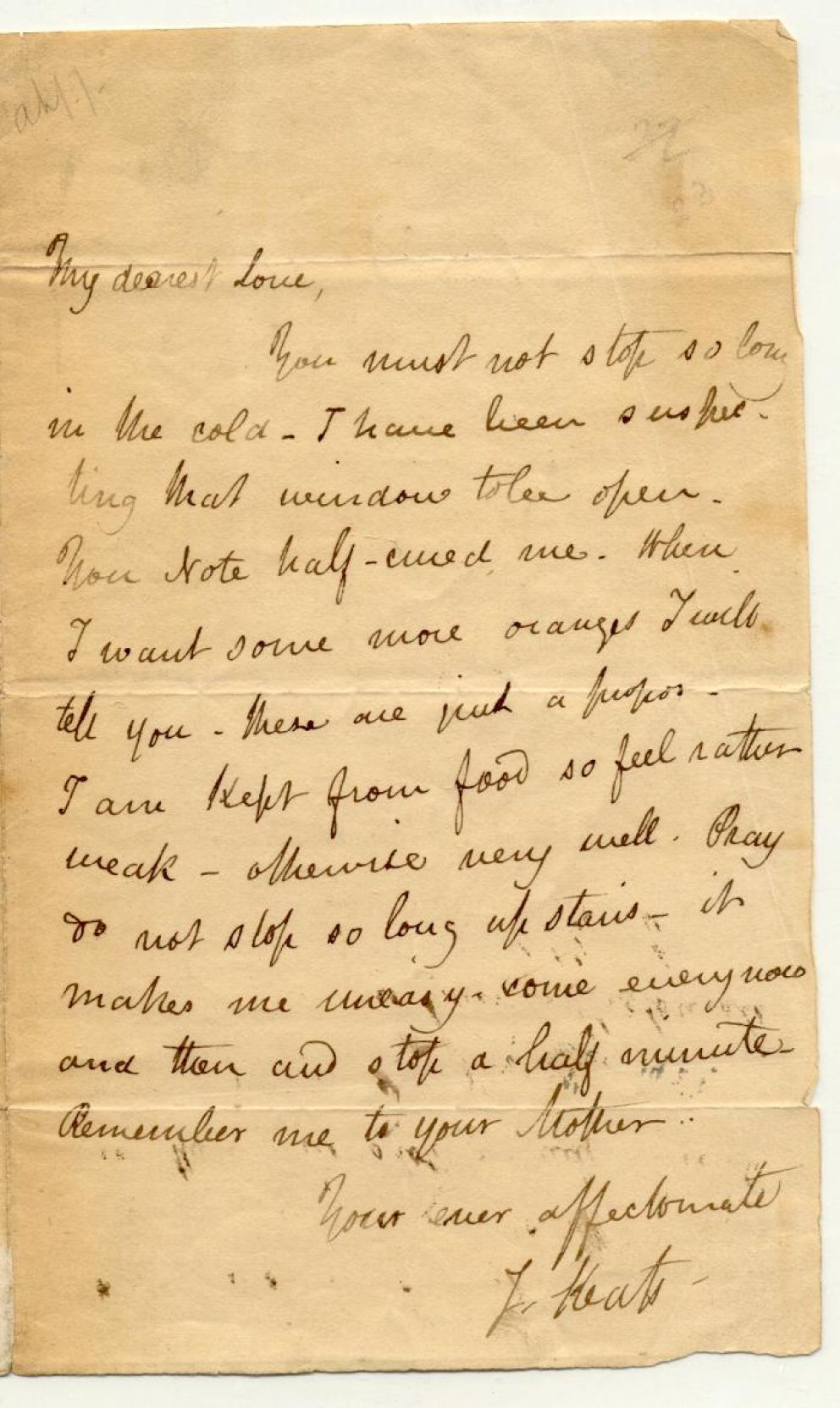
The Designated Archive
The Museum was founded to look after the remarkable finds from local cave sites and during the process of documentation of our cave collections, including the archive, we realised that it was the incredible manuscript material of Father John MacEnery and William Pengelly that set our collection apart from similar collections in the UK.
MacEnery's discoveries of stone tools with long-extinct animals shook the foundations of academic thought about human origins in the 1830s. He was encouraged not to publish his findings by William Buckland and his remarkable manuscripts and plates for his proposed book, Cavern Researches, were almost lost.
Following MacEnery's early death, William Pengelly and Edward Vivian rescued the manuscripts and published them. This was the foundation of the Quaternary Cave Archive. Pengelly built on this with his own ground-breaking excavations at Brixham Cave and then Kent's Cavern. He was the first to prove the antiquity of humans anywhere in the world and the records of these discoveries are in our archive.
All of Pengelly’s excavation notebooks, papers, testimonials, photographs and lectures are housed in our store, and make up a scientific archive that rivals in quality the other great nineteenth century archaeologists Lane Fox Pitt Rivers and Flinders Petrie. Although often forgotten in popular texts, Pengelly was truly ahead of his time – his recording techniques were exacting, and his identifications almost faultless. Had he been better published, his impact on archaeological science would have been far greater and this archive is a lasting legacy of a great mind.
Read More 

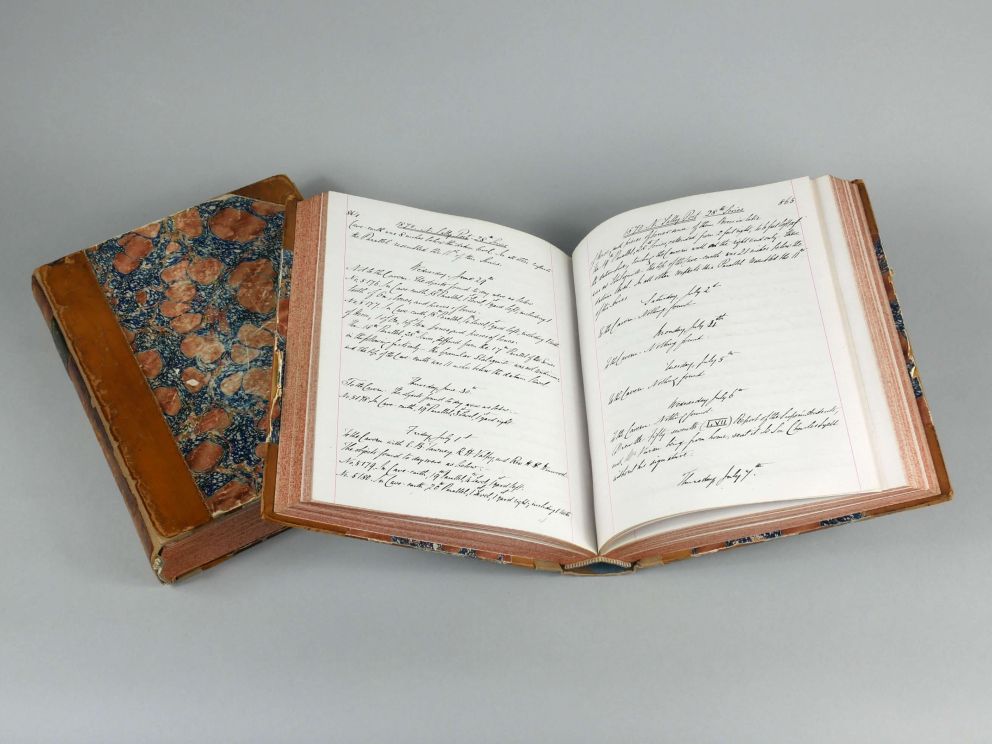
Collections of Regional Significance
We hold the original research notes and manuscripts for Charles Laycock's paper on the Old Devon Farmhouse. Along with his collection of over 1,200 items of Devon folk history, these form the most important collection of their type in the county, essentially forming the county collection of Devon's rural past. The collection was researched in the 1990s by social historian Peter Breares who published a book: The Old Devon Farmhouse.
We also hold an important group of archive items relating to World War II in Torbay, of particular significance due to Torbay's involvement in the D-Day Landings. This is probably the most significant historical event in the history of the three towns and possibly the region as a whole and this collection has been built considerably in the last few years. It includes landing craft documents, billeting arrangements, maps and accounts from American service personnel stationed here.
Read More 

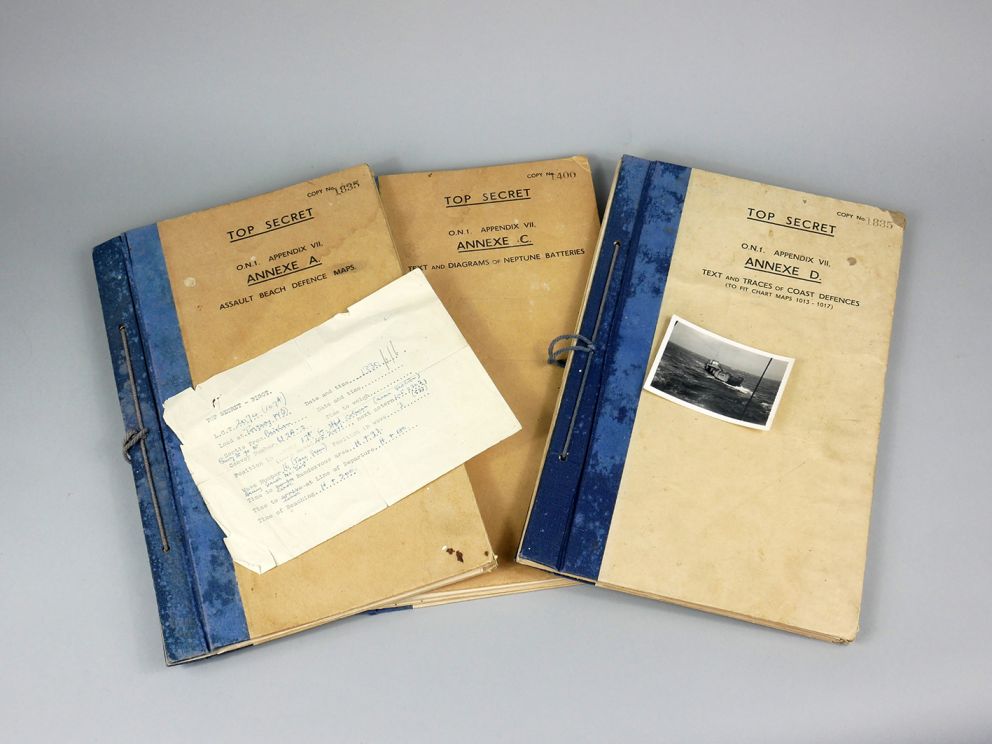
Secret Archive of Col. Percy Fawcett
In 2006, the Museum acquired the 'Secret Archive' of Col. Percy Harrison Fawcett, Torquay-born explorer. The archive contains the remarkable story of one family's obsessive search for a lost civilisation in the Brazilian rainforest. It has inspired an international best-selling book 'The Lost City of Z' by David Grann and a Hollywood film of the same name. Over 500 documents, letters, logbook diaries and cuttings record a remarkable life of exploration.
Read More 

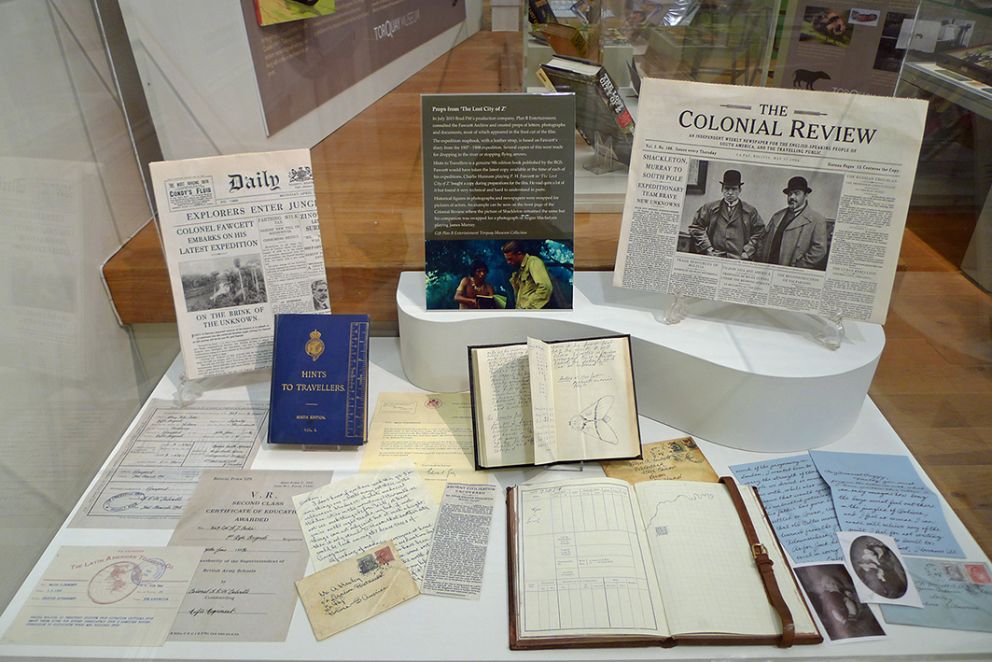
Published Articles
Read More 

-
The cities that Col Fawcett never found - 30 June 2022 (1.24 mB)
-
Remembering Col Percy Harrison Fawcett - 11 November 2021 (1.11 mB)
-
D-Day bonds that lasted a lifetime - 9 June 2022 (686.74 kB)
-
Remembering D Day's Secrets and Spies (863.66 kB)
-
The discovery of a lost autograph collection - 23 july 2020.pdf (811.64 kB)
-
Col Fawcett Torbay's answer to Indiana Jones 9 July 2020 (732.32 kB)
-
Remember, remember the fifth of November... - 4 November 2021 (636.24 kB)
-
Remembering the Americans on D-Day 79th anniversary (288.54 kB)
Support Torquay Museum
Did you know that whenever you buy anything online – from your weekly shop to your annual holiday – you could be raising free donations for Torquay Museum with easyfundraising? Find out how!
Stay Connected with Our Newsletter
Be the first to hear our latest news by signing up to our newsletter. Also don't forget to follow us on social media - @torquaymuseum.








